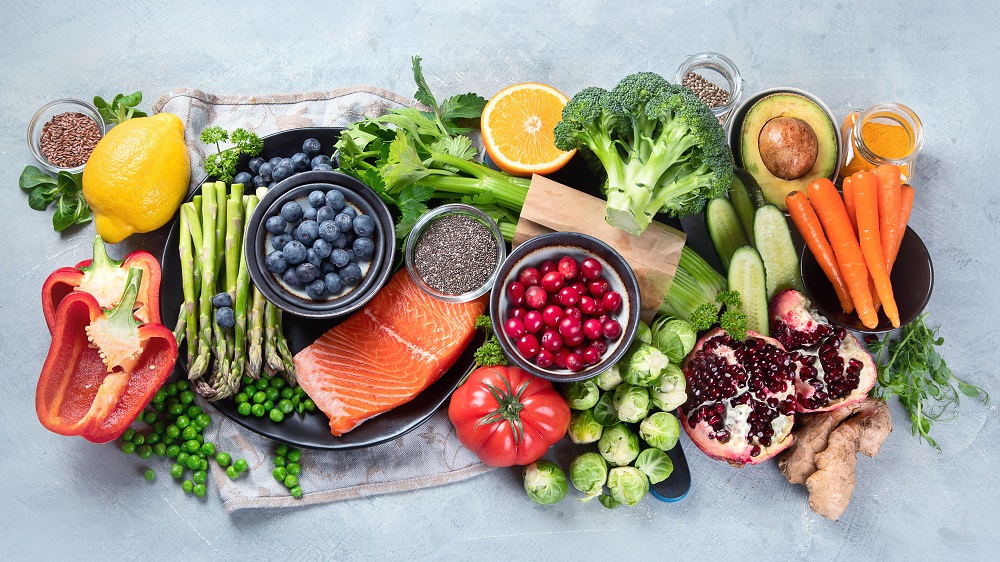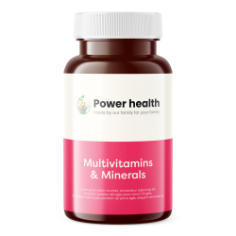What is vitamin B and vitamin B complex?
Vitamin B-complex is a collection of water-soluble vitamins essential for the body. These vitamins are naturally present in a range of food sources.
These vitamins stimulate the production of neurotransmitters, promoting brain health. B-complex vitamins work through a simple mechanism. They also help maintain a healthy heart and immunity.
The vitamin B-complex group is made up of 8 vitamins:
- B1 (Thiamine)
- B2 (Riboflavin)
- B3 (Niacin)
- B5 (Pantothenic acid)
- B6 (Pyridoxine)
- B7 (Biotin)
- B9 (Folate/Folic acid)
- B12 (Cobalamin)

What are the sources of vitamin B?
These vitamins are most commonly found in everyday foods like seeds, meat, eggs, and vegetables. See the extensive list of sources below:
- milk
- cheese
- eggs
- vegetables - beets, avocados, and potatoes
- whole grains and cereals
- beans - kidney beans, black beans, and chickpeas
- nuts and seeds
- fruits - citrus, banana, and watermelon
- dark green vegetables - spinach and kale
- soy products - soya milk and tempeh
- wheat germ
- liver and kidney
- meat - chicken and red meat
- fish - tuna, mackerel, and salmon
- shellfish - oysters and clams
Each of these B vitamins has a specific benefit. In the following section, we will delve into the health benefits these nutrients offer.
Promote Brain Health
Vitamin B1 (Thiamin) can help with the following:
- help the body break down and release energy from food
- keep the nervous system healthy
Good sources of vitamin B1 are:
- peas
- some fresh fruits - bananas and oranges)
- nuts
- wholegrain breads
- some fortified breakfast cereals
- liver
Stress and Chronic Fatigue
Research shows that the B vitamins can significantly benefit mood and reduce the physiological response to stress.
Boost the immune system
Vitamin B2 (Riboflavin) can help with the following:
- keep skin, eyes and the nervous system healthy
- the body release energy from food
Good sources of vitamin B2 are:
- milk
- eggs
- fortified breakfast cereals
- mushrooms
- plain yoghurt
It's found that exposure to UV light can destroy Riboflavin so these products should be kept out of direct sunlight
Lower stoke risk
There is research to suggest that vitamin B12 can assist with reducing strokes but there may also be complications and additional research is being undertaken.
Health hormones
Vitamin B5 (Pantothenic acid) has several functions, such as helping the body to release energy from food.
Good sources of vitamin B5 are:
- chicken
- beef
- liver and kidneys
- eggs
- mushrooms
- avocado

Reduce heart disease
Vitamin B6 (Pyridoxine) can help:
- the body to use and store energy from protein and carbohydrates in food
- the body form haemoglobin, the substance in red blood cells that carries oxygen around the body
Good sources of vitamin B6
Vitamin B6 is found in a wide variety of foods, including:
- pork
- poultry, such as chicken or turkey
- some fish
- peanuts
- soya beans
- wheatgerm
- oats
- bananas
- milk
- some fortified breakfast cereals
Biotin (vitamin B7)
Biotin is needed in very small amounts to help the body make fatty acids.
Reduce risk of anemia
Vitamin B9 (Folate/Folic acid) is found in many foods. The manmade form of folate is called folic acid.
Folate helps:
- the body form healthy red blood cells
- reduce the risk of birth defects called neural tube defects, such as spina bifida, in unborn babies
A lack of folate could lead to folate deficiency anaemia.
Folate is found in small amounts in many foods.
Good sources include:
- broccoli
- brussels sprouts
- leafy green vegetables, such as cabbage, kale, spring greens and spinach
- peas
- chickpeas and kidney beans
- liver
- breakfast cereals fortified with folic acid
Like with all vitamins, a healthy and balanced diet can supply all you need. However, if, for whatever reason you are not getting enough from your food choices, taking a vitamin B dietary supplement can help. As always, speak to your doctor if you have any particular health concerns.












